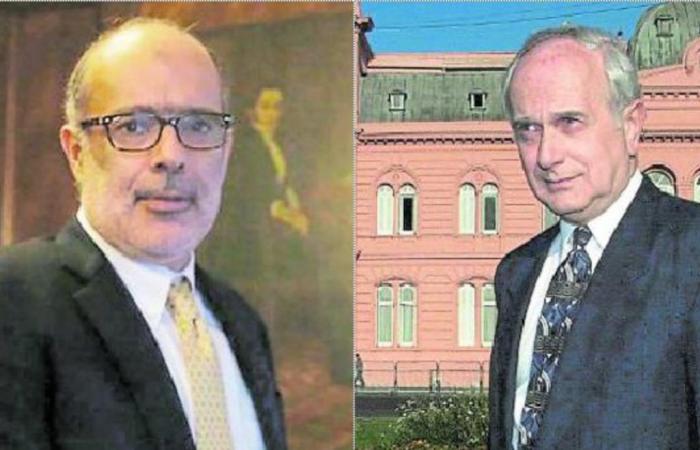—You can’t tell me this, you have to explain it to the President. —Domingo Cavallo confronted Tomás Reichmann.
It was November 2001. In a month the final collapse of Argentina’s economic and political regime would occur: convertibility and the Alliance, a center-left government coalition.
Cavallo was the Minister of Economy. Fernando de la Rúa, President. And Reichmann, a Chilean economist in charge of the Argentine case for the IMF.the body that had been holding the Central Bank’s reserves. Reichmann worked in the Western Hemisphere Department, the same sector that Today another Chilean, Rodrigo Valdés, is driving.also an economist, and which was crossed this week by the current president of Argentina, Javier Milei.
That time Cavallo and Reichmann went to see De la Rúa in Olivos. The Chilean told the President that a situation had been reached in which the organization would no longer provide financial assistance. There was no more money.
From there Reichmann went directly to Ezeiza to take the plane that would take him back to Washington. End.
Cavallo did not give up. He took the next plane and arrived in the United States to meet with Reichmann’s bosses, Hörst Köhler, director of the International Monetary Fund, and Ann Krueger, the then number two at the IMF.
The debate for the Fund’s officials was like this: the discussion continued to take place along the lines that, basically, Argentina had to devalue. In truth, this already came from the time before Cavallo was Minister of Economy: Stanley Fischer, Krueger’s predecessor, had made the same request to José Luis Machinea, Minister before Cavallo. Of course, neither for the economic team nor for the president, devaluing was an option in a country like Argentina.
But neither the fiscal measures that had been taken in previous years, plus a multi-million euro mega-package (shield), had managed to restore market confidence and reduce country risk.
Reichmann once admitted his bewilderment. “I feel frustrated. Argentina is a country that has done a lot of good things, but it is still unable to raise the sentiment of its own people, which drives it away from the capital markets. This is beyond my control. “We don’t know how to deal with this type of social psychology.”
But the economy does not stop moving and the crisis continued to worsen.
On December 7, 2001, Krueger hand-delivered to Cavallo a one-page document titled “Steps to achieve a sustainable program”. The text consisted of a list of six points to reach an agreement on a program with the organizationamong them, agree on a fiscal adjustment to reduce financing needs to zero by 2002, end tax exemptions, restructure debt and remove the corralito. The document nowhere called for ending convertibility. Köhler and company thought that if they showed him in detail all the steps that would have to be taken to achieve fiscal adjustment, Cavallo would abandon “one peso-one dollar.” But no. The minister doubled the bet.
—Okay, let’s do it then.answered.
The minister returned to Buenos Aires and the next day went to the Casa Rosada to explain the plan to the President and the Chief of Staff, Chrystian Colombo.
—And how did Mingo do?Ignacio de Mendiguren, the president of the Argentine Industrial Union, asked Colombo a few hours later.
—Like asshe replied.
Cavallo was unable to sustain the adjustment without obtaining more funds from the Monetary Fund.
“That meeting in Olivos was one of the most bitter moments of my professional career,” Reichmann told a couple of years ago. Clarion for this column.
Today, almost 20 years later, an Argentine president and a Chilean IMF staff economist meet again. Or rather, to debate. Milei charged this week against Valdés when she mentioned that among the obstacles that his management faces in lifting the stocks are the “puts” (insurance paid by the Treasury to the banks) left by Alberto Fernández’s management. “We are talking about four points of GDP. And it is not only the responsibility of the previous government but from an IMF technician who turned a blind eye to this, someone with ties to the São Paulo Forum”Milei shot. Another dispute today with the IMF is that the disbursement to the country would be on the condition that the money be used to intervene in the dollar.
“Recognizing that we had reached the end of the road after having worked so hard to avoid that outcome, and being aware of what the crisis would bring, was very hard for us and, of course, even more so for the government authorities.”Reichmann told Clarion 20 years later.


